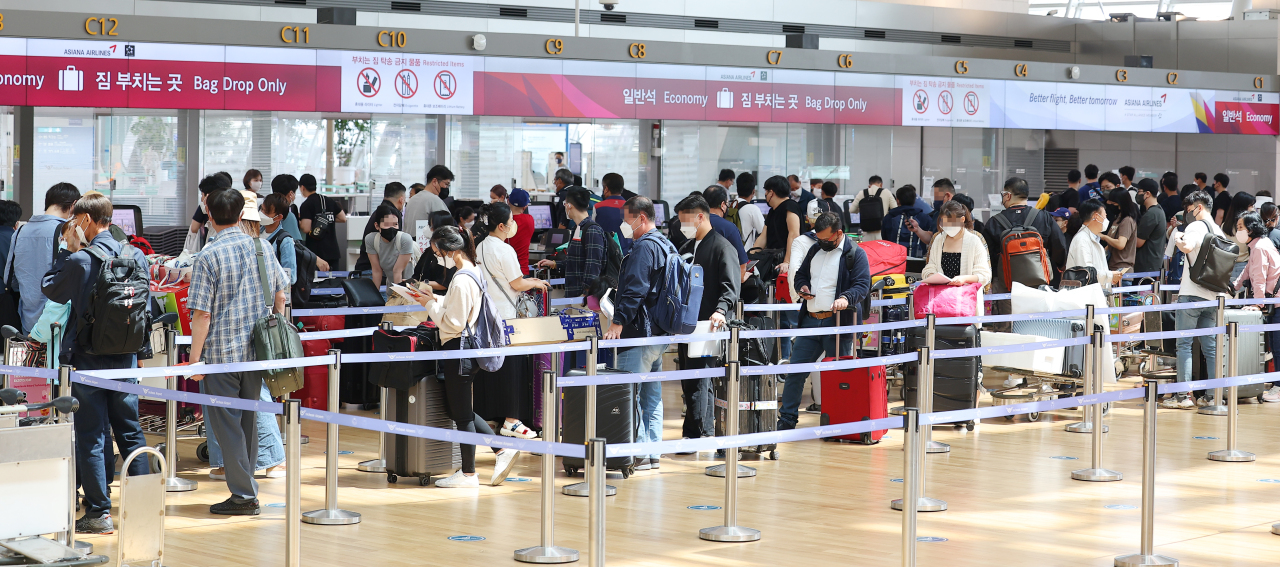 |
Passengers line up for boarding at Incheon International Airport on Saturday. (Yonhap) |
Following the government’s eased rules on COVID-19 testing for travelers, air carriers are bracing for the summer holiday season as they reopen suspended international routes and refurbish cargo planes to carry passengers.
On Sunday, the country’s largest flag carrier Korean Air announced that it is adding more than 30 flights per week to Europe and US routes from next month.
The number of flights to popular destinations such as San Francisco, Vancouver, London, Amsterdam and Frankfurt is expected to exceed 190 flights per week from the current 159 flights.
Korean Air is also considering resuming the operation of ceased services to Southeast Asian countries. From Thursday, it will reopen the Incheon-Cebu route to operate two flights a week.
Currently, many of the company’s passenger planes are used as cargo planes with the passenger seats removed. During the protracted coronavirus pandemic, the air carrier offset losses in passenger travel thanks to surging demand in cargo shipping.
The company said it plans to gradually turn six of its 16 cargo planes to passenger planes by reattaching the seats.
Asiana Airlines is also resuming its Incheon-Rome and Incheon-Paris routes from June, with talks still ongoing for the resumption of the Gimpo-Haneda route.
Budget carrier T’way said it will also reopen service to Ho Chih Minh, Bangkok and Dah Nang as well as opening a new route to Singapore. A number of the flights to Tokyo, Osaka, Fukuoka, Guam and Saipan will be added too.
Jeju Air said it will resume its Jeju-Bangkok and Busan-Singapore routes from June and increase its number of flights to Bangkok, Cebu and Manila.
The Transport Ministry projected the number of international flights to surge from this month’s 532 flights per week to 762 flights per week next month.
The Korean government has eased rules on quarantine and COVID-19 screening tests upon arrival.
Starting from June 1, children under 12 are exempt from mandatory quarantine when they arrive with fully-vaccinated parents or supervisors. The current age limit is six.
As for the screening tests, a rapid antigen test, which is cheaper and more convenient, is now also recognized along with the PCR test.
By Kim Da-sol (
ddd@heraldcorp.com)








![[Today’s K-pop] Blackpink’s Jennie, Lisa invited to Coachella as solo acts](http://res.heraldm.com/phpwas/restmb_idxmake.php?idx=644&simg=/content/image/2024/11/21/20241121050099_0.jpg)